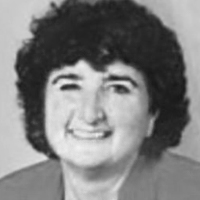Question
How can normal swallow variability in aging be distinguished from a truly disordered swallow?
Answer
The aging swallow is not disordered. There are very typical changes that occur as we get older, and we should not mistake them for true dysphagia. However, aging does make a person more susceptible to dysphagia.
Laryngeal penetration is normal, particularly in the aging population. Normal laryngeal penetration is not consistent, so if you are doing a swallow study with a patient and see laryngeal penetration consistently across trials, then that is more likely to be disordered compared to the patient who has only intermittent laryngeal penetration.
Another important way to distinguish normal laryngeal penetration from disordered penetration is depth. If you are seeing laryngeal penetration that is reaching the level of the vocal folds, research suggests that is much more likely to be disordered, and much more likely to be predictive of actual aspiration. Shallow penetration - penetration that enters the laryngeal vestibule and never really gets to the level of the vocal folds, and generally clears spontaneously - is typically not considered disordered.
Another thing to pay attention to, in terms of pharyngeal swallow physiology, is pooling of secretions in the laryngeal vestibule. Even if you do not actually see aspiration during a swallow study, if that material sits in the vestibule and does not clear spontaneously, then that is much more likely to be predictive of aspiration and more likely to be related to a true dysphagia. Again, normal laryngeal penetration happens inconsistently, is shallow, and is cleared spontaneously.
Angela Mansolillo, MA/CCC-SLP,BCS-S is a Speech-Language Pathologist and Board Certified Specialist in Swallowing Disorders with over 25 years of experience. She is currently a senior Speech-Language Pathologist at Cooley Dickinson Hospital in Northampton, Massachusetts where she provides evaluation and treatment services for adults and children with dysphagia and is involved in program planning and development for inpatient and outpatient programming including quality improvement initiatives, patient education, and clinical policies and protocols.

